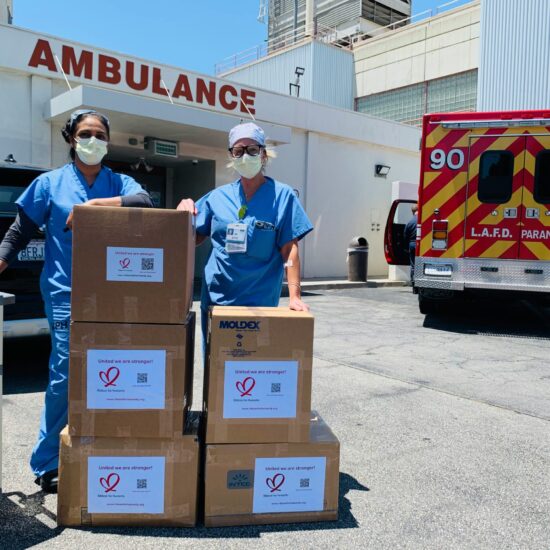 Jen Busse, RN, MPH, is an intern at the CHMP, and currently pursuing an MS in nursing as a Family Practice Nurse Practitioner at Columbia University. Prior to pursuing a BSN/MSN and an MPH at Columbia, she received a BS in Biochemistry from the University of New Hampshire in 2005. She was involved in preclinical cancer research at both Harvard Medical School and then at Columbia University’s Herbert Irving Cancer Center for four years. She received her Masters in Public Health in Epidemiology from Columbia University in 2009. For her MPH thesis she conducted research in HIV prevention strategies among high-risk groups in China. Working with the people in these communities played a significant role in her decision to pursue a career in family practice nursing and public health. She feels that empowerment through education is key to positive health outcomes in any community, and plans to continue her work along these lines as an intern at the Center for Health, Media and Policy.
Jen Busse, RN, MPH, is an intern at the CHMP, and currently pursuing an MS in nursing as a Family Practice Nurse Practitioner at Columbia University. Prior to pursuing a BSN/MSN and an MPH at Columbia, she received a BS in Biochemistry from the University of New Hampshire in 2005. She was involved in preclinical cancer research at both Harvard Medical School and then at Columbia University’s Herbert Irving Cancer Center for four years. She received her Masters in Public Health in Epidemiology from Columbia University in 2009. For her MPH thesis she conducted research in HIV prevention strategies among high-risk groups in China. Working with the people in these communities played a significant role in her decision to pursue a career in family practice nursing and public health. She feels that empowerment through education is key to positive health outcomes in any community, and plans to continue her work along these lines as an intern at the Center for Health, Media and Policy.









Steve Gorelick / September 8, 2010
Welcome Jen:
What an interesting background.
I actually have a question that you are probably well-placed to answer:
I have heard, over the years, all sorts of opinions and statements about the extent to which the PRC does or does not report accurate statiscs about incidence and prevalence to WHO and other organizations.
What is your take on this?
Steve Gorelick
/
Jen Busse / September 8, 2010
Hi Steve,
Thanks very much for your welcome! You pose a great question. While I am aware it’s a hotly debated issue, unfortunately, my experience was at the micro level, and I am not able to comment on any national-level statistics.
Inaccurate statistical reporting is a problem across the globe. The reliability of reported statistics is often questioned, but difficult to measure. We have to take into account that there are a number of highly stigmatized health issues (e.g. HIV/AIDS) for which it is very difficult to collect accurate data. Moreover, accurately reported data may be difficult to achieve in countries where incentives exist to falsify data. Importantly, inaccurate or falsified data often obscure the prevalence of significant public health problems. This may lead to inattention to an epidemic, and potentially, its propagation.
I hope this helps.
Jen
/
Steve Gorelick / September 8, 2010
Very, very helpful.
I also should have made clear that, in asking about the PRC, I was not suggesting that states more identified as having democratic institutions are necessarily better at reporting or significantly more willing to be straightforward.
But I have always been interested in the extent to which statistics and data — especially in public health — can be tossed and battered around in a political context, leaving us less well informed and prepared.
So much in pandemic monitoring depends on speedy reporting, and I get the willies when I contemplate any state or bureaucracy being “speedy” and forthcoming.
I worry less about intent than with the natural self-protective stance of complex institutionsa.
I really look forward to hearing more about your work.
/